Eva O’Leary in conversation with Romke Hoogwaerts
Eva O’Leary grew up between the US and Ireland. She received a BFA from California College of the Arts in 2012, and an MFA from Yale in 2016. She currently works between New York and Pennsylvania.
Romke Hoogwaerts is based in Brooklyn and runs Mossless, a photography magazine and photobook company. He has worked as a photo editor at MSNBC, The New York Times Magazine and Bloomberg Businessweek. He is currently developing a project with Rubber Factory, a new photo gallery in NYC’s Lower East Side.
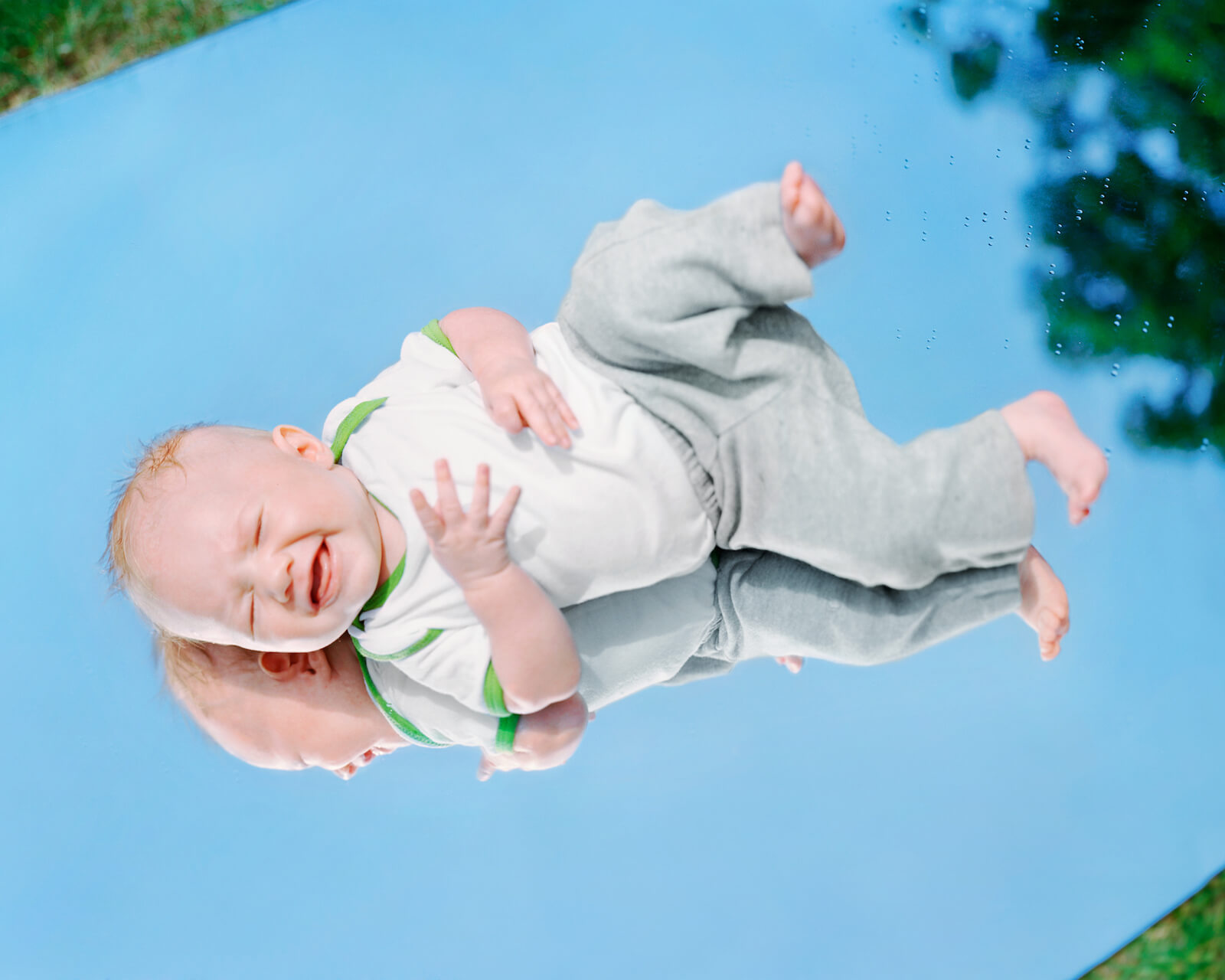
Romke Hoogwaerts: So, you’ve just moved back to New York after graduating from Yale. How does it feel to be finished with school? Does your life feel settled?
Eva O’Leary: No way! My life is still up in the air, but I honestly can’t think of a time where it didn’t feel that way. I’m kind of used to it—I think I’d get depressed if things began to follow a pattern. As for being done with school, some days are better than others, but generally I’ve been feeling pretty good. It’s a surreal thing trying to settle back into my life after two years away.
RH: Do you feel like you got what you needed from it?
EOL: Yes I do. I’m still processing the experience, but I think the time I spent there clarified a lot of things I’d been struggling with. For instance, grad school deepened a lot of my thoughts about gender and the ways in which my identity and experiences tend to inform my work.
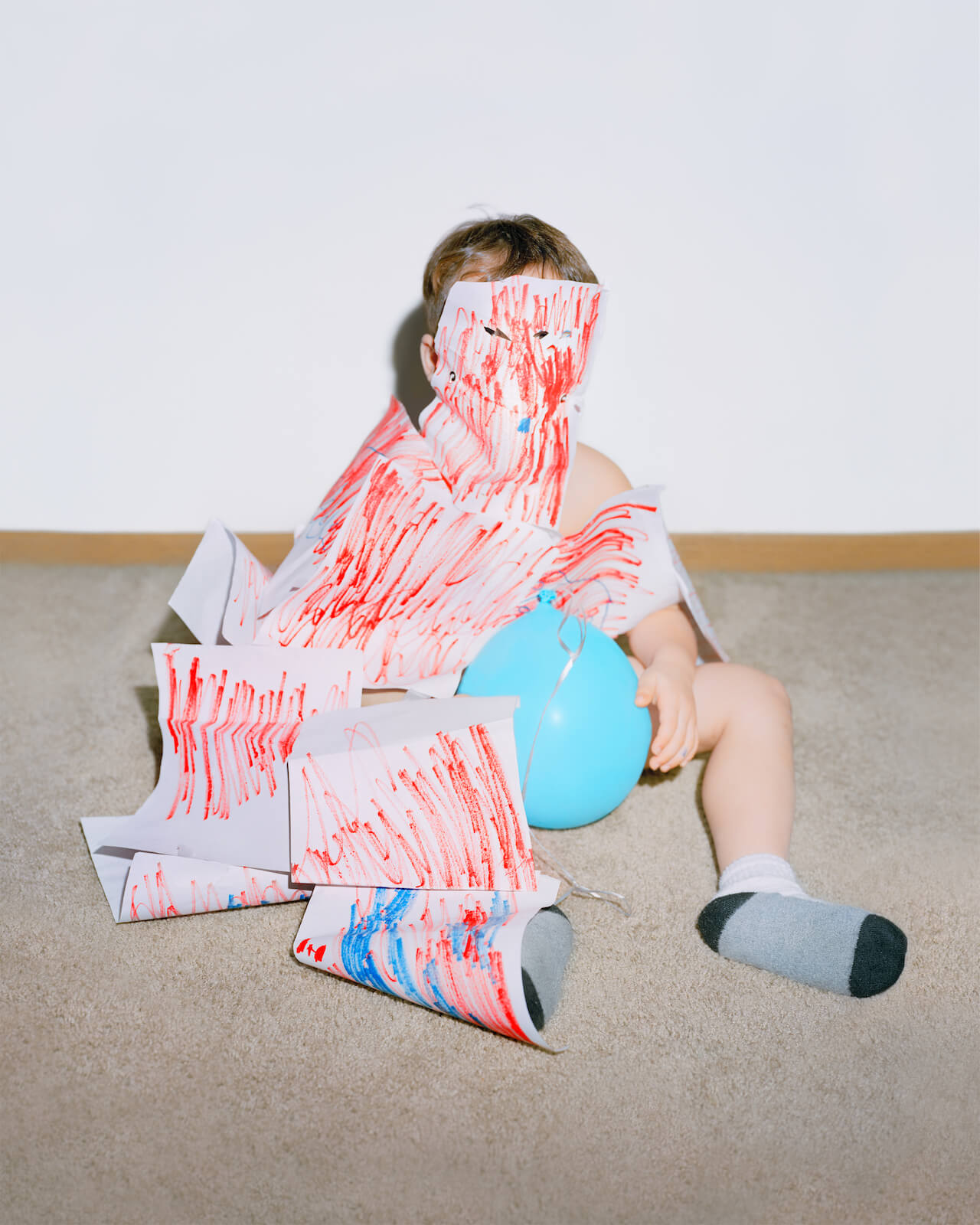
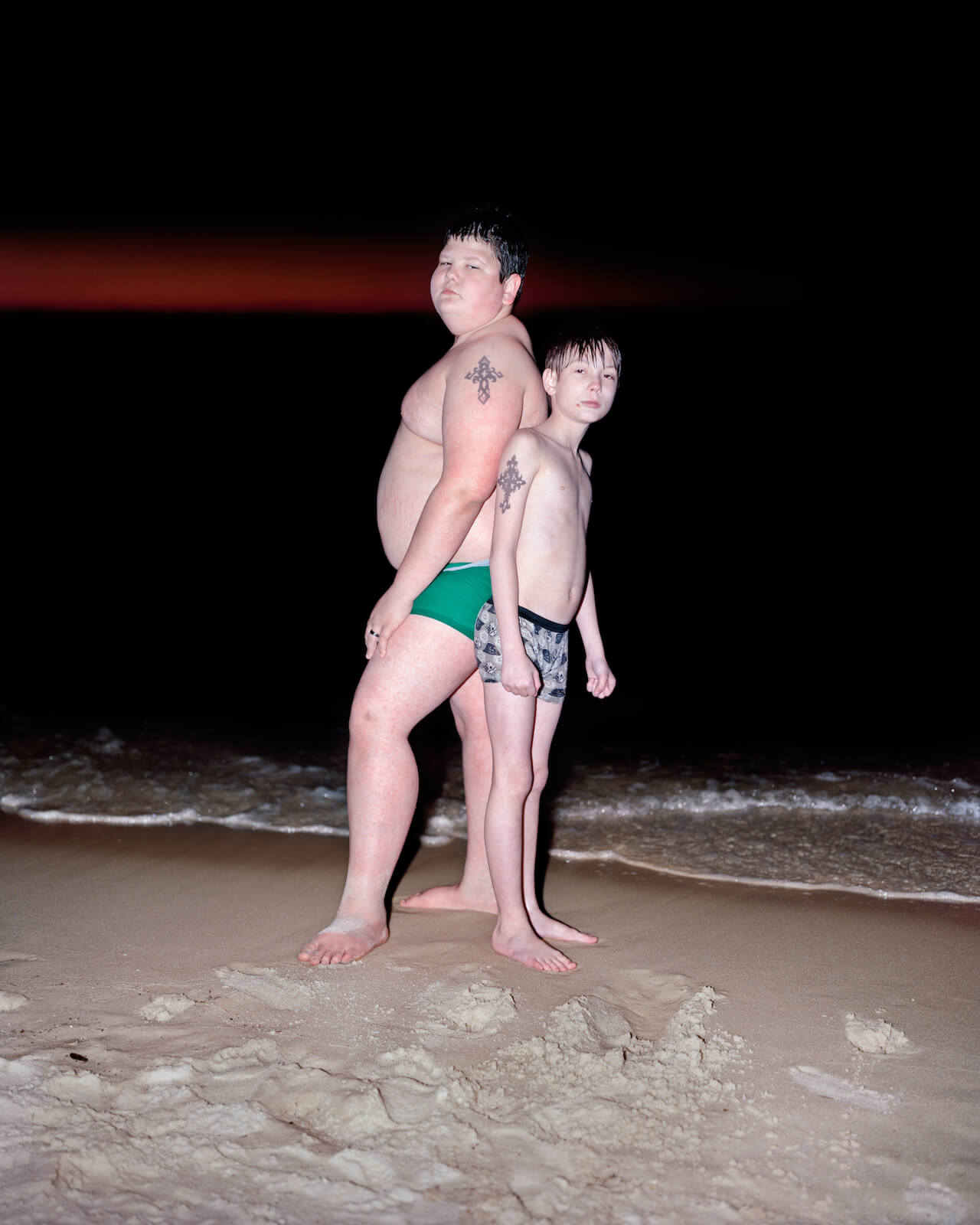
RH: Do you feel like your work uses a commercial style?
EOL: When I was younger I was definitely seduced by commercial photography. I remember looking at magazines in high school and thinking, “Holy shit, how can you make an image look like that?” They felt surreal. You couldn’t ignore them. As I got older, I realised these images were basically poison, but the seductive qualities of the pictures stuck with me. I didn’t ever intend to replicate a commercial language in my work. I think it spilled over into what I was making. I knew that as an image-maker I wanted to make pictures as powerful as the propaganda I was seeing elsewhere, but I also wanted the work to come from a personal and human place. Flannery O’Connor said something like, “I write to know what I think, and unless I write, I won’t know what I think.” I feel the same way about how I work. I will become obsessed with wanting to see something, but in order to understand why I want to see it I first have to make it. I am obsessed with commercial photography because it imprints on me—it has this sneaky way of affecting me, even if I’m resisting it.
RH: Can you tell me more about the road trip you’re about to go on? Where are you going and what are you hoping to see?
EOL: I’m not sure. I have a difficult time making work in NYC, it can be such a vacuum. I mainly want to observe and be receptive to what I find. As of now, I’m looking for gender dynamics, body language, rituals, behaviour. I don’t have specific images in mind, I see this mostly as a research trip that will inform future projects.
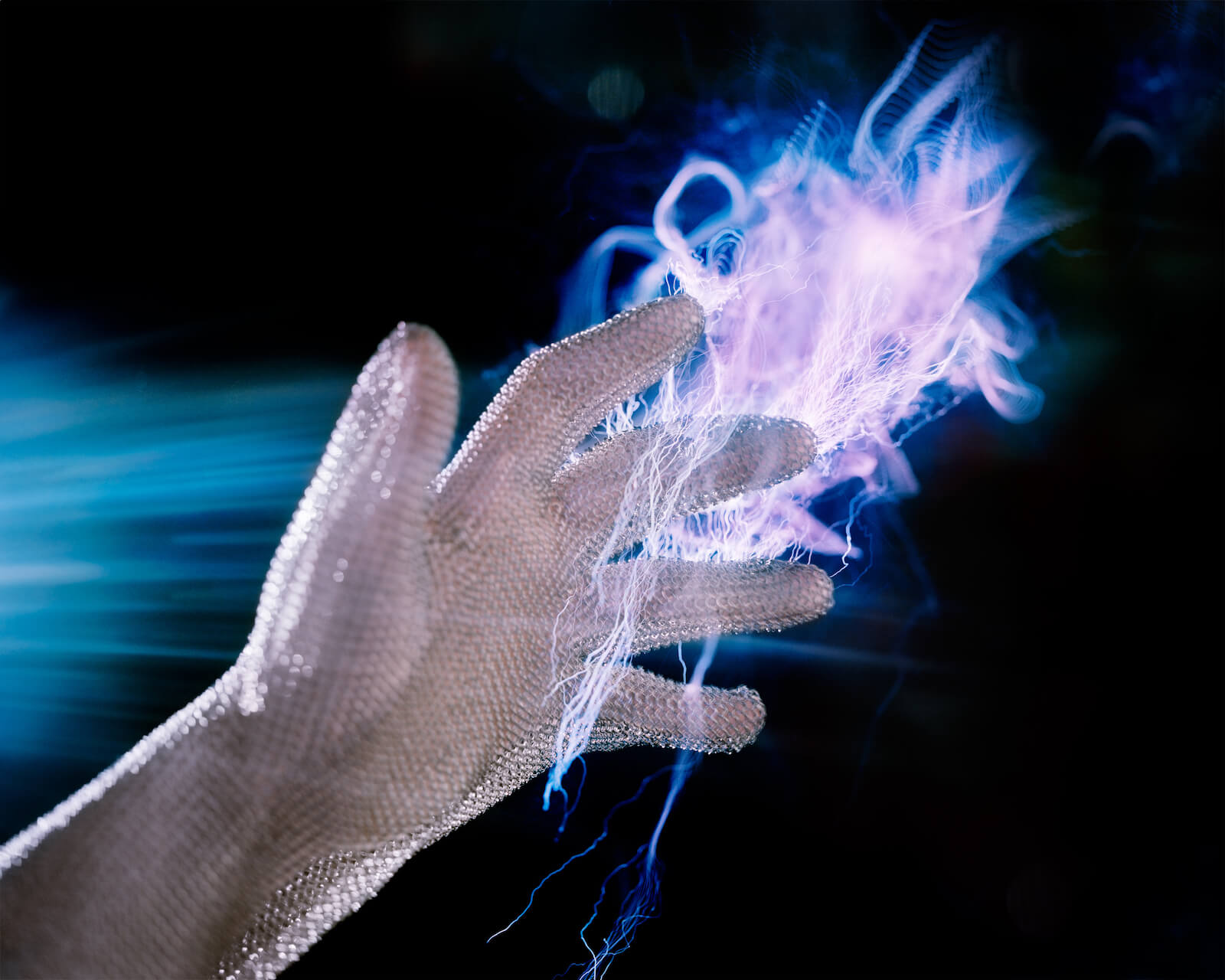
RH: I want to talk to you about your use of color—it’s so strong. Do you have a special process when it comes to the colors and tones of your images?
EOL: No specific process—each picture comes with its own set of problems. I think color is a really powerful tool, and I spend a lot of time adjusting/manipulating each picture until it feels visually balanced.
RH: You were at Yale with Sara Cwynar who also works with manipulating her images. Would you say there are any similarities between your work?
EOL: I love Sara’s work, and I’d say that the concern with representation and gender in both of our work is the more interesting similarity between us. Most of the photographers I know digitally manipulate their images to varying degrees. I think ideally digital manipulation is another tool to generate meaning—you want a picture to look a certain way in order to elicit a certain reaction or experience, so you use a certain tool. For Sara, and also for someone like Robin Myers (another artist I admire), digital manipulation is central to the content of the pictures. For them, it would make sense to talk about the details of their digital process because that process is visible in their images and it’s central to the meaning of their work. For me, I don’t think it makes as much sense for the viewer to see my hand in the process. Obviously digital manipulation is essential to the content of my pictures since I’m dealing with commercial imagery, but my pictures use manipulation in a way a that ads do—they’re clearly enhanced, but I think they work best when you can’t precisely locate where they depart from reality.
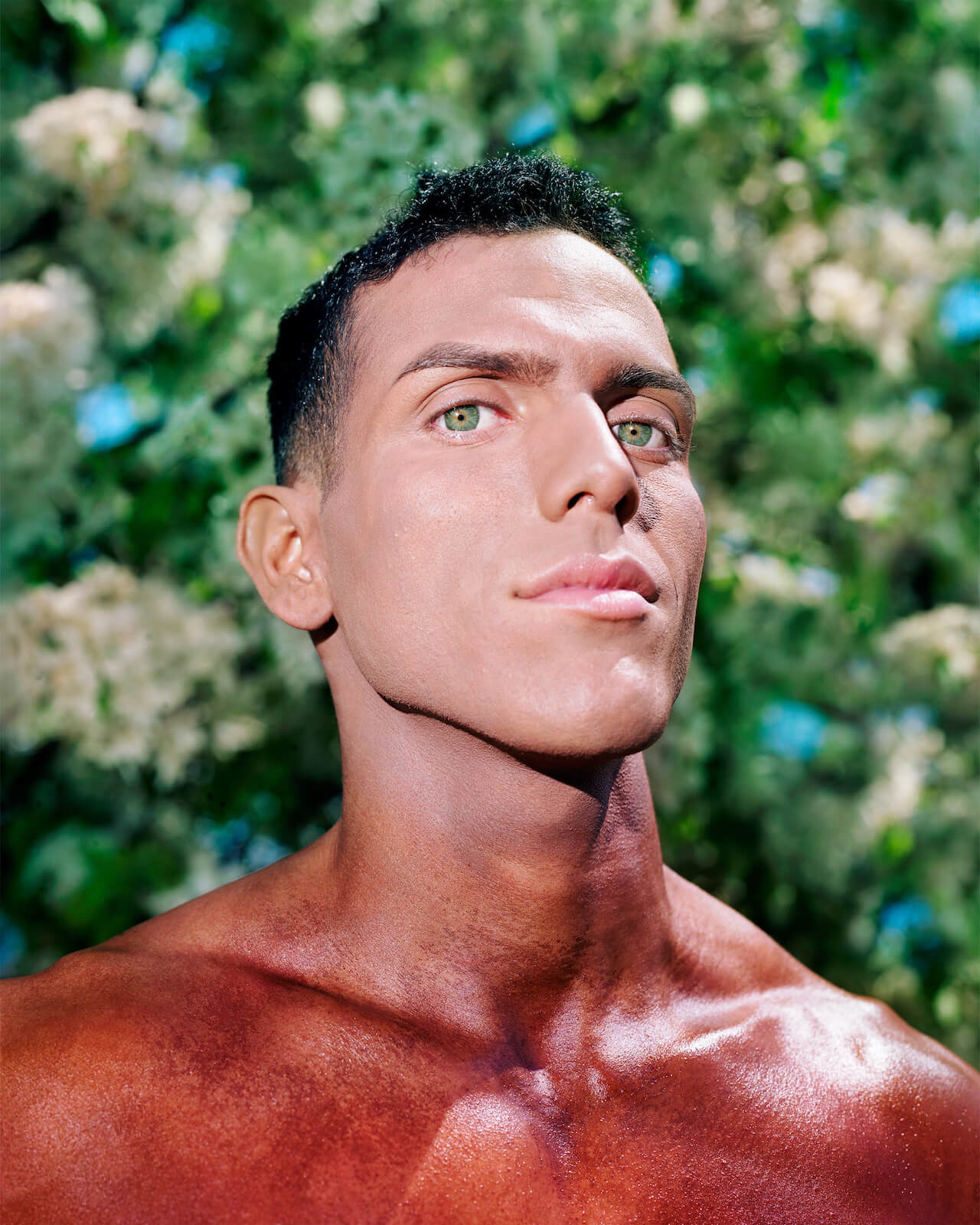
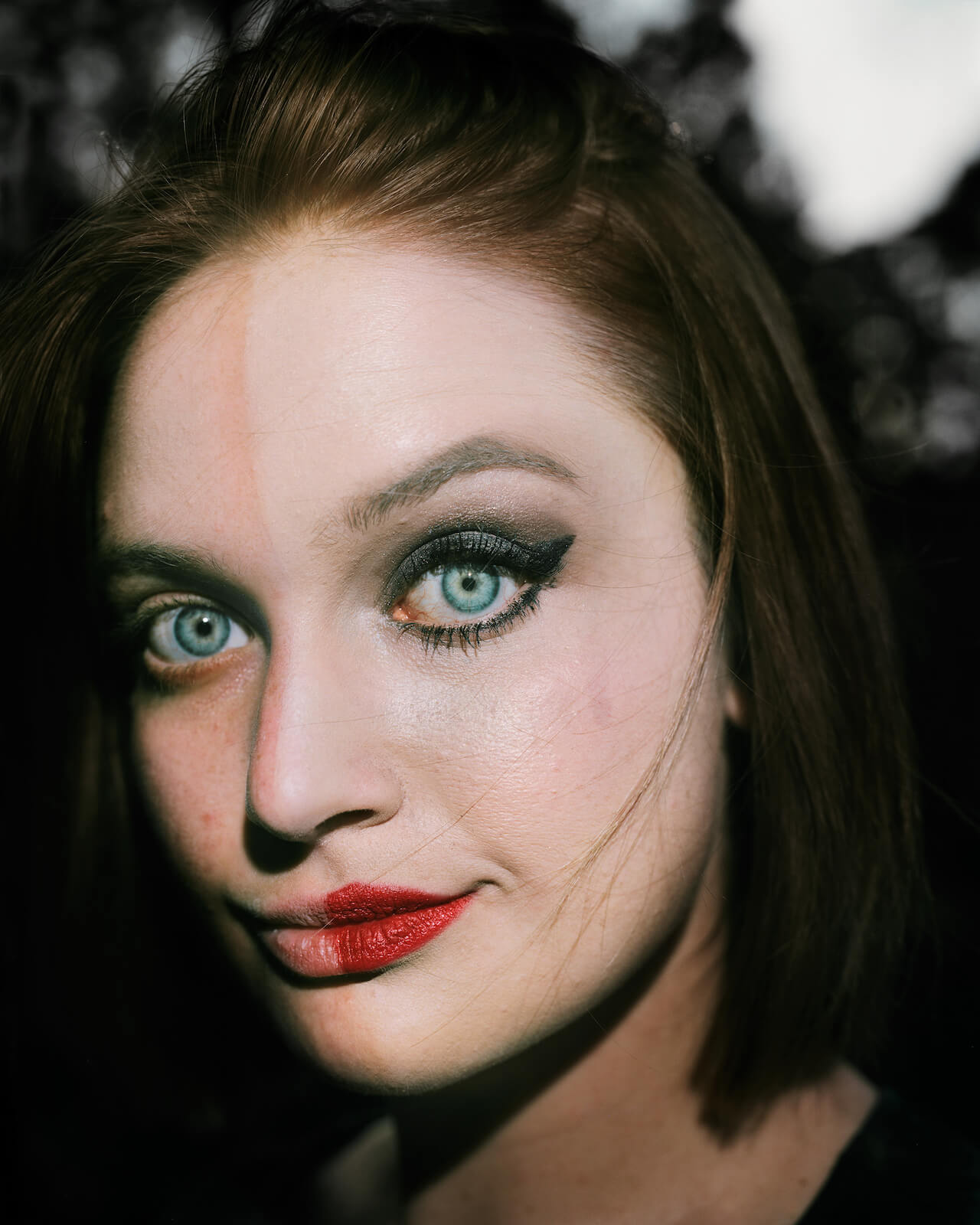
RH: There’s a great image of yours, in which we see a group of young shirtless men. What are they doing? Chanting? It looks like they’re taking a shower together.
EOL: That picture is intentionally devoid of context. The frame is tight and all you see is a wall of bodies. The context is ambiguous—that’s part of its menace. So I’d like to leave it open ended.
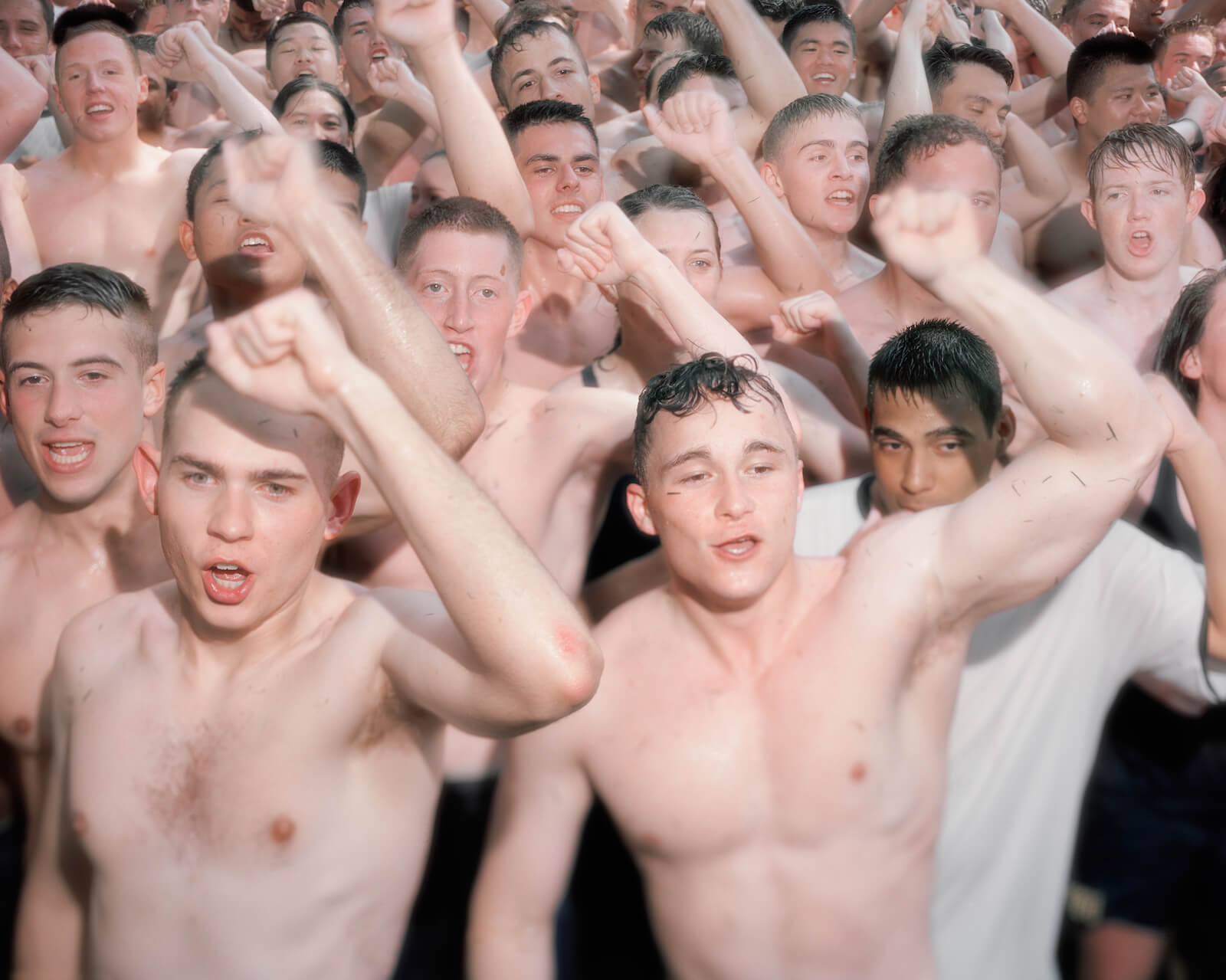
RH: You describe the town where you grew up as “hyper masculine.” Growing up, I did a bit of team sports but I never had the same enthusiasm that other kids had. I want to know, do you feel like you connect to similar female interests?
EOL: Well, first I want to object to the premise that team sports aren’t inherently female interests, but yes—I think, especially as an adolescent, I found myself sucked into the stereotypically feminine, particularly in terms of having insecurities that are considered “female.” I think that’s why I’m drawn to certain elements of girl culture like the rituals we put ourselves through in order to appear normal. Harassment, I will add, has also had an impact on me. You get harassed in the grocery store, on the street, on campus—it’s everywhere. It’s inherent to our society at this point. So at a young age I started seeing make-up and clothing as a kind of defense mechanism, a kind of armor, a way to control how others would react to me.
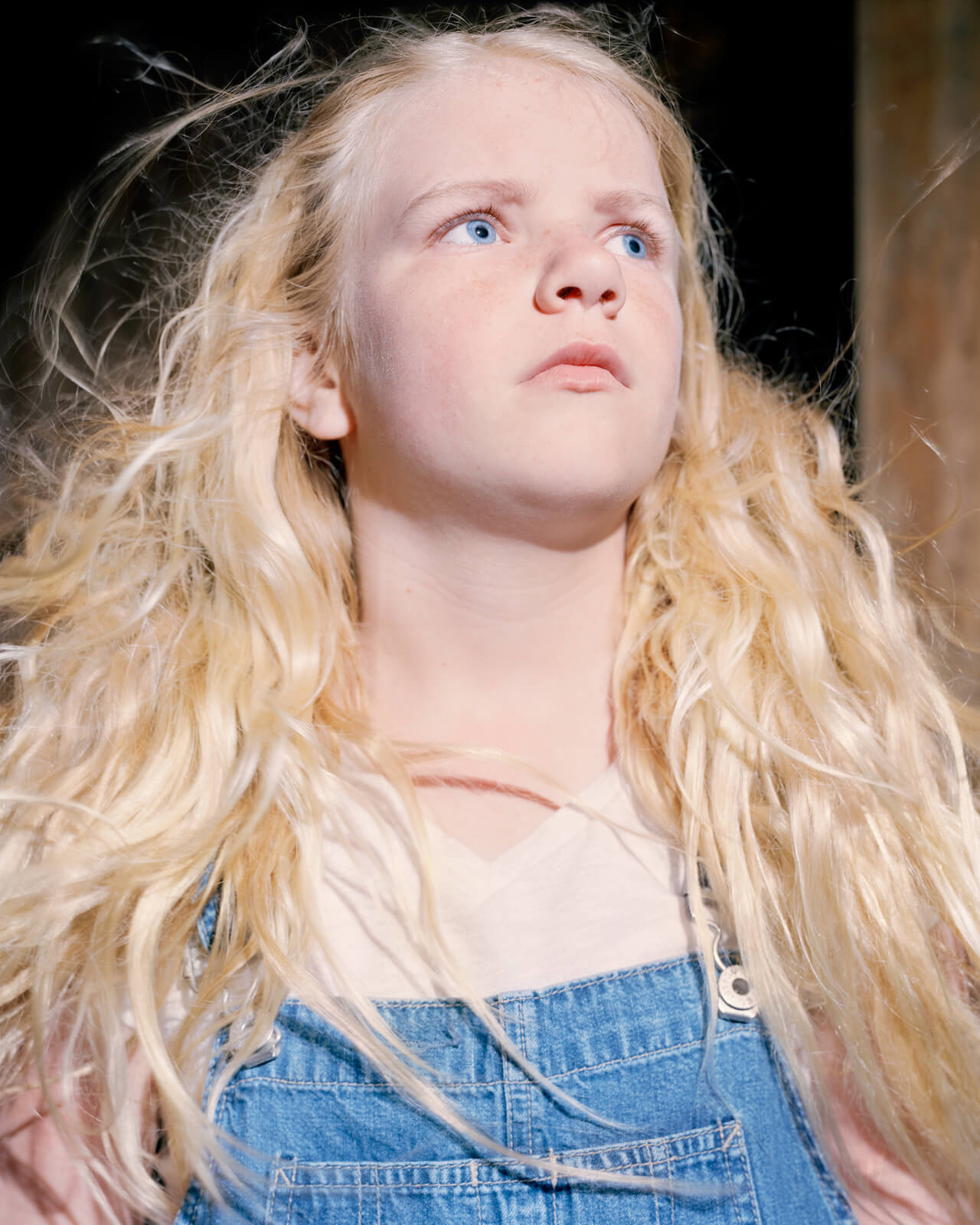
RH: When you were young, was there something that allowed you to see beyond the culture of the town where you grew up? For me it was the internet and later on, skateboarding.
EOL: Maybe this sounds cheesy, but it was a camera. I got this James Bond lighter camera when I was 13 and I was obsessed. When I was 14, I started taking pictures with a digital SLR and started making videos. I took some photography classes in high school, and when I was 16 I spent a summer at the Pennsylvania Governors School. It was an intensive summer course in photography. That was the first time I really felt I could continue doing this.
RH: What are you most excited about in the road-trip? Taking some time off?
EOL: I don’t really like time off. I’m excited to start making work again, and I’m really looking forward to having time to think.
Rocket Science has been featuring the best in contemporary photography since 2016 through interviews, conversations, studio visits and essays by photographers, writers and artists. Your donation to Rocket Science directly supports new artistic content in the pages of Rocket Science and helps us pay our contributors fairly.
